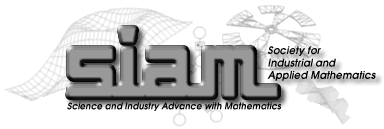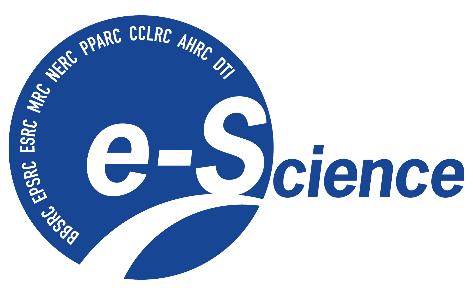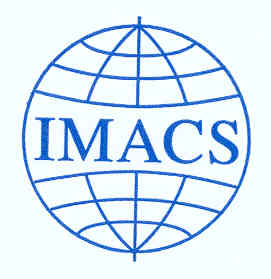

|
|
 |
|
|





|
ICCS 2006 Tutorials
May 28-31, 2006
We will have three tutorials on Sunday, May 28
- Tools for Program Analysis in Computational Science
Dieter Kranzlmüller - P-Grade Portal
P. Kascuk, T. Kiss and G. Sipos - Scientific Computing on Graphics Hardware
D. Göddeke and R. Strzodka
Tools for Program Analysis in Computational Science
Dieter Kranzlmüller1, Andreas Knüpfer2, Matthias Müller2 1 GUP, Joh. Kepler University LinzAltenbergerstr. 69, A-4040 Linz, Austria/Europe
kranzlmueller at gup.jku.at 2 ZIH, Dresden University of Technology
D-01069 Dresden, Germany
knuepfer at zhr.tu-dresden.de, matthias.mueller at tu-dresden.de
Computational science and engineering (CSE) is an area with traditional strong links to the super-computing, simply because even today the demands of CSE can only be fulfilled by the most powerful machines available. Yet, the utilization of high performance computing (HPC) technology represents a major challenge for building correct and useful software. The building blocks of advanced HPC architectures is given by parallel and distributed processing with all its associated difficulties and obstacles for software developments. Since users of CSE want to focus on the scientific problems and not on the software engineering challenges, computer scientists are trying to provide tool support which intends to simplify the application developers task.
This tutorial focuses on two tasks of the software development cycle, error debugging and performance tuning. The presenters introduce a variety of software tools for these tasks, and provide insight on the application of these tools from the CSE users' perspective. In terms of debugging, special attention is given to detection of errors observed in parallel and distributed programs. This includes the identification of communication errors, e.g. messages with different length at sender and receiver, but also studies concerning nondeterministic program behavior. In terms of program analysis, tracefiles including actual performance bottlenecks and ways for their recognition are demonstrated. The practical aspects of this session are covered with a variety of tools developed at the Johannes Kepler University Linz, e.g. MAD and DeWiz, the well-known software tools Vampir and VNG from Dresden University of Technology, as well as the analysis and checking tool MARMOT, jointly developed at the High Performance Computing Center Stuttgart (HLRS) and the Technical University Dresden.
P-Grade Portal
Gergely Sipos - MTA SZTAKI, Hungary (sipos at sztaki.hu)Tamas Kiss - University of Westminster (T.Kiss at westminster.ac.uk)
The P-GRADE Grid Portal is a workflow-oriented Grid portal that enables the creation, execution and monitoring of workflows in grid environments through high-level, graphical Web interfaces. Components of P-GRADE Portal workflows can be sequential and parallel MPI jobs and OGSI/WSRF grid services. The P-GRADE Grid Portal hides the low-level details of Grid access mechanisms by high-level intuitive interfaces that can be used on any Globus or EGEE based production Grid platform. Workflows developed within the P-GRADE portal are portable between such Grids without learning new technologies, commands and tools. In this way the P-GRADE Grid Portal helps users cope with the complexity and heterogeneity of Grid systems. More than that, since the P-GRADE portal can be connected to multiple Grids simultaneously, user having access for several Grids can exploit all those Grids by the different components of the same workflow applications. The P-GRADE Portal is already available as a service for the UK NGS, the SEE-GRID and several VOs of the EGEE Grid. During the tutorial the main features of the P-GRADE Portal will be presented and demonstrated. During the demonstrations applications from different fields of research and industry will be used.
The course is mainly intended for existing and future Grid application developers and end users. It will cover the following topics:- How to publish legacy applications as Grid services with the P-GRADE Portal with minimal user effort
- How to develop workflows for the P-GRADE Portal with an intuitive graphical tool either by connecting Grid services or jobs together even within the same graph.
- How to execute and visualize the progress of such workflows in Globus (e.g. UK NGS), LCG or gLite middleware based Grids by the P-GRADE Portal.
- How to collaborate with other Portal users either in on-line or off-line ways.
Besides current and future Grid users the tutorial is also targeting Grid resource and Grid service providers, as by the P-GRADE Portal they can significantly enhance the quality and user friendliness of their services.
Tutorial tentative schedule:- Introduction to the P-GRADE Portal ('60)
- The collaborative version of the P-GRADE Portal ('20)
- Demonstrations ('15)
- Publishing and invoking legacy applications as Grid services by the GEMLCA specific P-GRADE Portal ('30)
- Demonstrations ('15)
Scientific Computing on Graphics Hardware
D. Göddeke and R. Strzodkahttp://www.mathematik.uni-dortmund.de/~goeddeke/iccs/tutorial.html
In this tutorial we will introduce, present and discuss several basic and advanced techniques for scientific computing on graphics hardware. The tutorial will be based on contrasting CPU techniques with their GPU equivalent.
-
Introduction:
High-level view of the GPU as a streaming processor, programmable stages of the graphics pipeline, co-processor style computing - Basic concepts:
arrays=textures, array indices=texture coordinates, kernels=shaders, computing=drawing, feedback loops, readback - Data formats and vectorization techniques:
one to four components, swizzling with four components (analogously to SSE) - Program optimization:
hiding latencies with math, precomputing, taking advantage of the vertex pipeline and the rasterizer, .. - Bandwidth limitations and techniques to avoid them:
Aynchroneous data transfers, interleaving transfer and computation, ... - Accuracy issues and possible workarounds:
Emulation vs. mixed precision iterative refinement - Case studies:
iterative solvers for linear systems, PDE solvers, multigrid methods, abstract data structures
ICCS 2006 is endorsed by | ||||||||
 |
 |
 |
||||||
ICCS 2006 is organised by | ||||||||
 |
 |
 | ||||||
| Web: Milena
Zajac,
Zofia Mosurska, Piotr Wendykier, Dick van Albada (dick at
science.uva.nl) and Mike Lankamp |
Last updated: August 23, 2005 |
